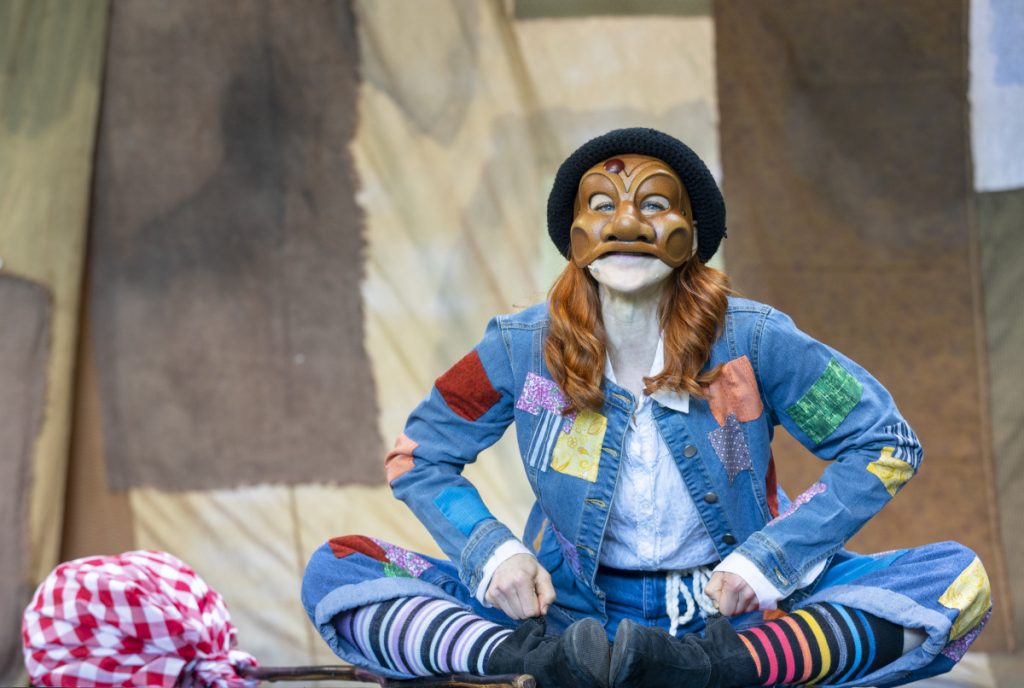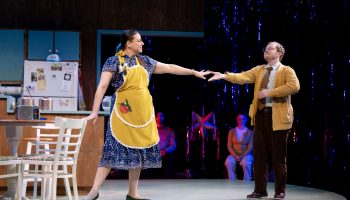DAVID KWIATKOWSKI – STAFF WRITER
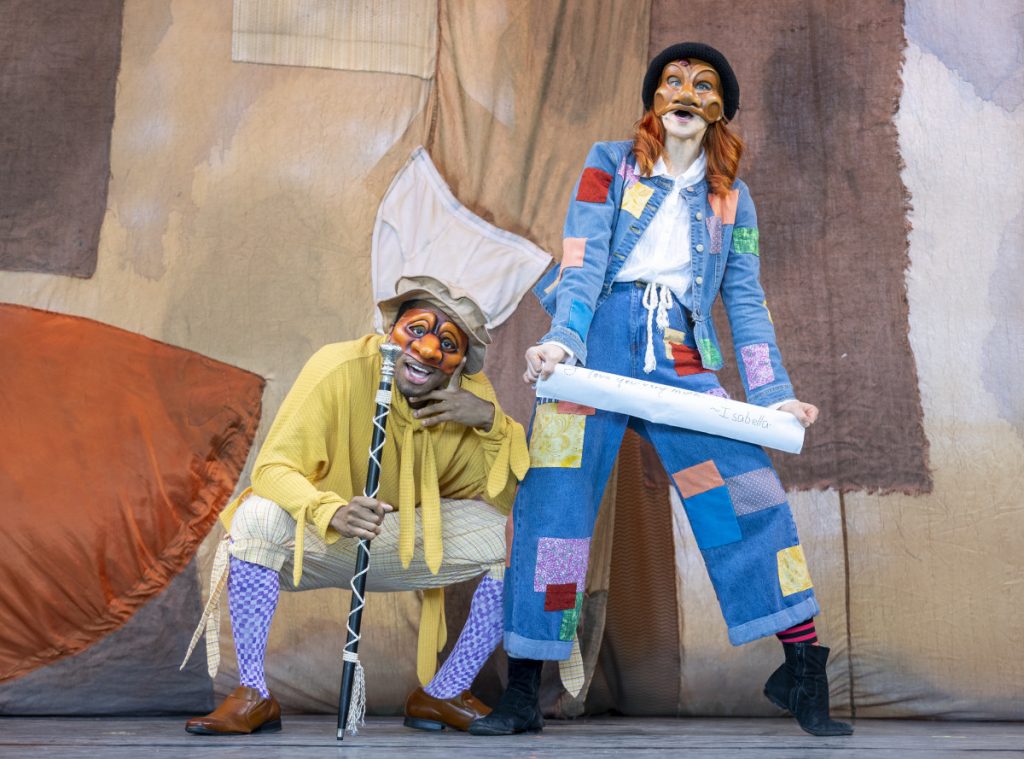
What do you call a show that has absolutely no script, parameters or bounds of what can and cannot happen?
Comedy gold.
Audiences can expect that gold, and the unexpected, from Chautauqua Theater Company’s self-developed production of Commedia at 4 p.m. both Saturday and Sunday at the Performance Pavilion on Pratt.
The show is modeled after the commedia dell’arte art form that developed in Italy from the 16th to the 18th centuries. The art form involves a series of planned scenarios serving as the script and the actors improv off each other to carry the plot along.
Artistic Director Andrew Borba is directing the production and commended the actors in the conservatory as the best CTC has seen in years.
“They’re a special group,” Borba said. “… We are fortunate here to attract some immensely talented, amazing human beings and artists here every year. … Even from the beginning workshops, they’ve been nothing but ferociously courageous with each other, taking leaps that I don’t know that I’ve gotten out of students in two or three years in graduate credit training programs.”
All of the conservatory actors have a range of experience in improv comedy, and despite the initial fears of having no script, they are fully committed to the art form.
“They just jumped and went for it,” Borba said. “They’re incredibly supportive of each other. They’re cracking each other up. They’re a unit, which is a bit of a miracle for the amount of time that they’ve been together. I have nothing but absolute respect and praise for this group, because they really are just each special individuals in that they’ve bonded and are working like magic.”
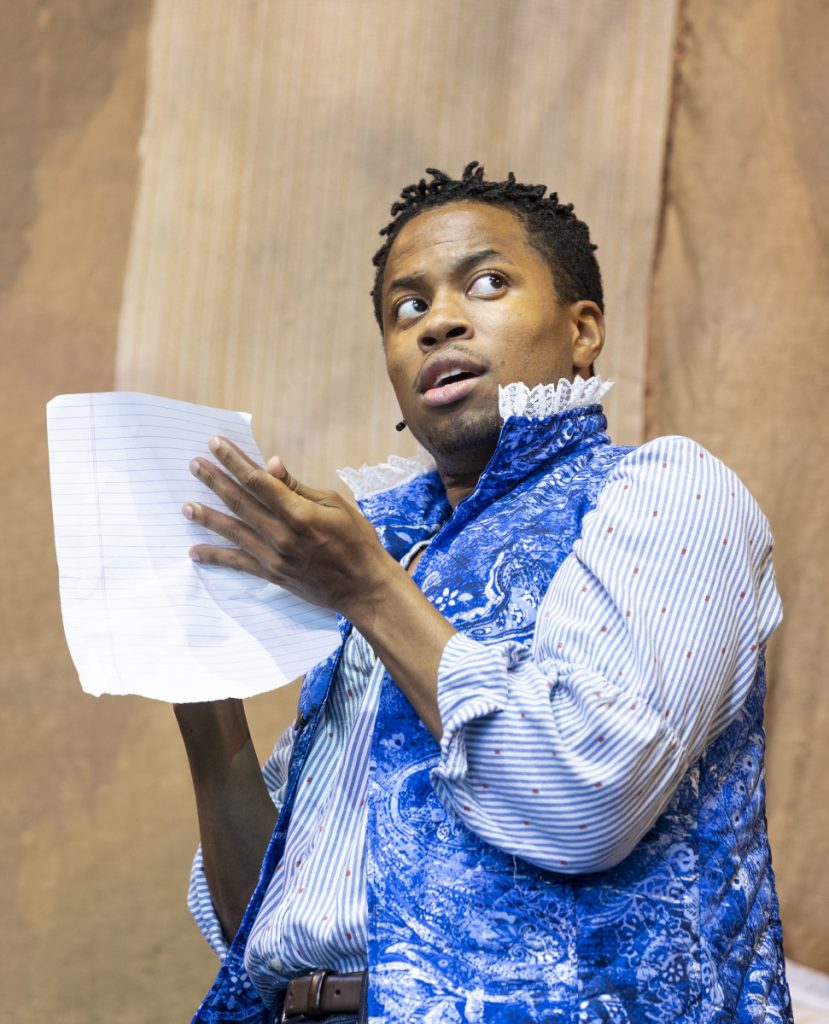
Actor Malachi Beasley, who is portraying Pantalone in the show, had his interest in acting sparked by comedic actors like Will Smith, Robin Williams and Jim Carrey, who could equally move people to laugh at one moment and to cry at the next.
“I love (them) so much because they can make you (laugh) and suddenly cut you at your heart,” Beasley said. “(Williams) in ‘Good Will Hunting’ and ‘Dead Poets Society’ had big laughs and then you’re like, ‘Why am I crying?’ Well, you allowed yourself to be vulnerable and laugh so you are (allowing yourself) to be vulnerable to cry.”
Commedia dell’arte is known for its use of masks that the actors wear over their faces; Borba saw an irony in choosing the art form at this time in history.
“Isn’t it wonderfully ironic and/or paradoxical putting on masks at a time when we’re taking them off?” Borba said. “That’s a way to look deeper into ourselves and to be in the same space together.”
Beasley appreciates the art form’s flexibility in allowing both the actors and audiences’ minds to run wild.
“I appreciate the aesthetic of it, though it is old,” Beasley said. “It is clownish, and it is kind of cartoonish, but I think it really does activate people’s imaginations and reminds you to be a kid.”
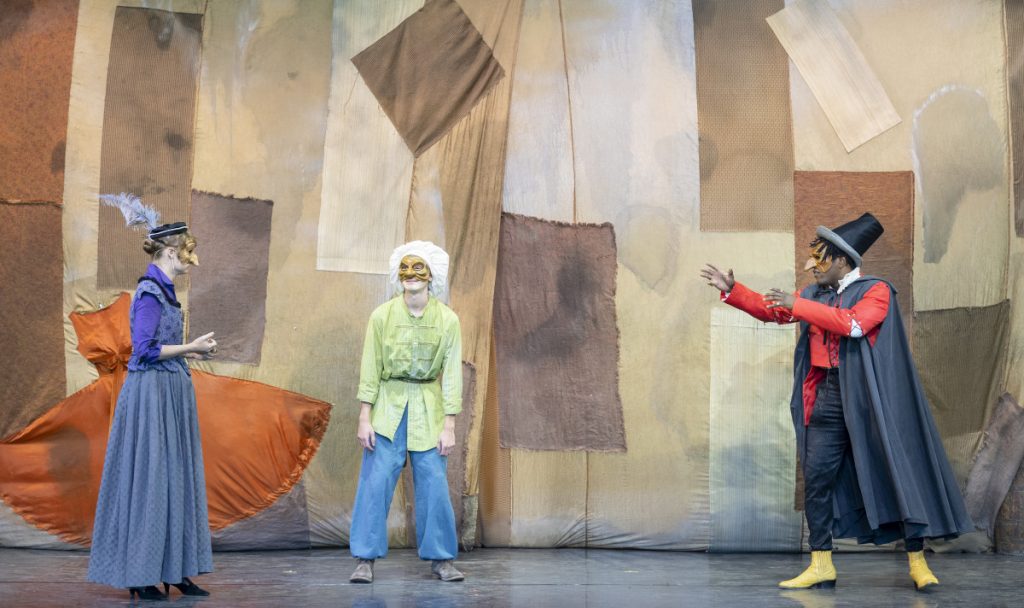
Even though the show’s costumes will reflect the time period when the art form was popular, the jokes will be reflective of modern humor.
“We’re not trying to recreate ancient commedia dell’arte,” Borba said. “That’s the surest way to kill (the show). Those were activators at a time when death was very present. There’s something about the balance of those forces. If this play is anything, it’s a celebration of the life force.”
Due to the lack of an actual script, departments relied on what happened in rehearsal to inform how to proceed. For instance, usually, Props Director Cooper Nickels makes a list of props needed based on the script.
“The reason I like to read the script to make my own props list is because sometimes (the director) can overlook things that they don’t think about right off the bat,” Nickels said. “If it’s not something that’s specifically called out, but you realize that they’re eating a meal on the scene, it might not say that they need plates, forks, napkins, cups and food. The director might just say we need a dining set or something vague, and you have to get more specific with it.”
As rehearsals went on, Nickels would receive the rehearsal report listing more props the actors and directors needed, but there needed to be enough created for the show’s whole run.
“You have to make sure that you have enough for every show, and for however many times in tech and how many times in rehearsal,” Nickels said. “Trying to figure out that number early on is important, because you don’t want to make more than you have to, but you also don’t want to make fewer and then have to make more later.”
There were some props that Nickels was certain that he needed to create for Commedia, like a curtain and some swords.
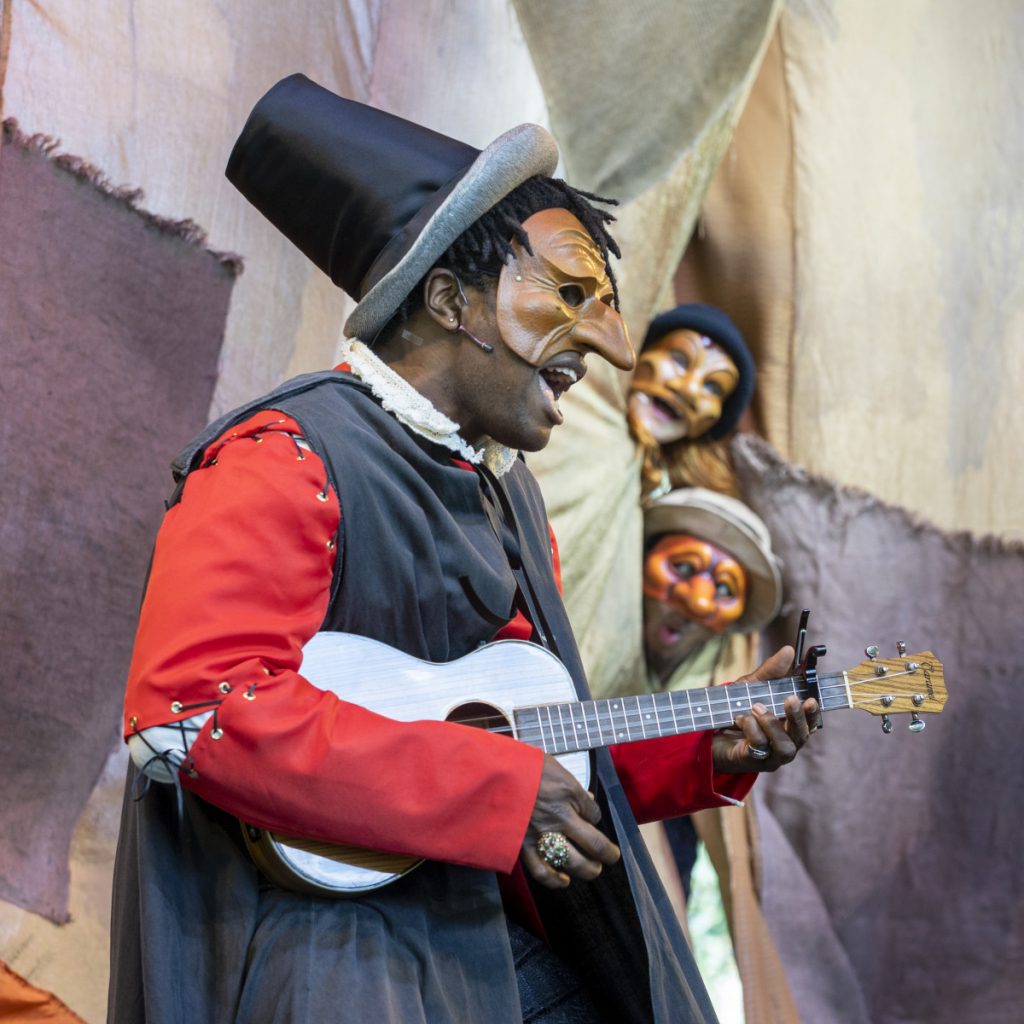
He called on an old props director to come help make the curtain. He wasn’t given any references, just that the curtain needed to look old, weathered and damaged. He found an old curtain in storage that CTC used for a past show that already had water damage and pieces cut out of it.
“It made my job a lot easier on the show because normally when you have a curtain, it’s supposed to be pristine and wrinkle-free and you have to be really careful with it, and only paint it with specific brushes, and hang it up in the air and not let it touch the floor,” Nickels said. “There’s a lot more leeway with this one, for sure.”
Nickels researched images of swords and had extensive conversations with Borba about the differences between Roman and English broadswords.
“You want them all to be in the same world, but you don’t want them all to be matching,” Nickels said. “You don’t want all of them to have a silver blade with a black handle, because that’s boring, but you want them all to feel like they are related in the same world, so I was trying to strike that balance.”
The child of a member of the Friends of Chautauqua Theater was able to help build a dagger appearing in the show, said Nickels.
“It’s pretty fun to get them in here to work, and have them actually make a prop that was going to go onstage,” Nickels said. “It was a big deal for them.”
As a director, Borba is used to going straight by the script, but due to the nature of the show, he is right alongside the actors in playing the guessing game that is improv.
“I am trying, as a director, to engage in the same process that I’m asking of my actors and designers, which is to be present and open to what is happening right now and risk big brilliance and big failure,” Borba said. “… We are intentionally walking on a tightrope, and that is the thrill of it.”
